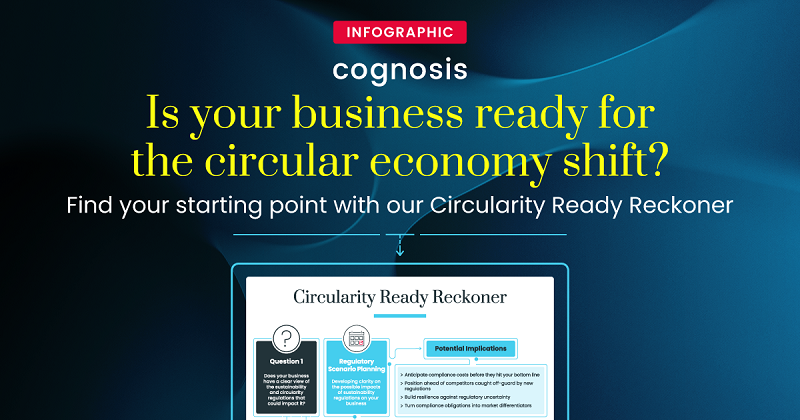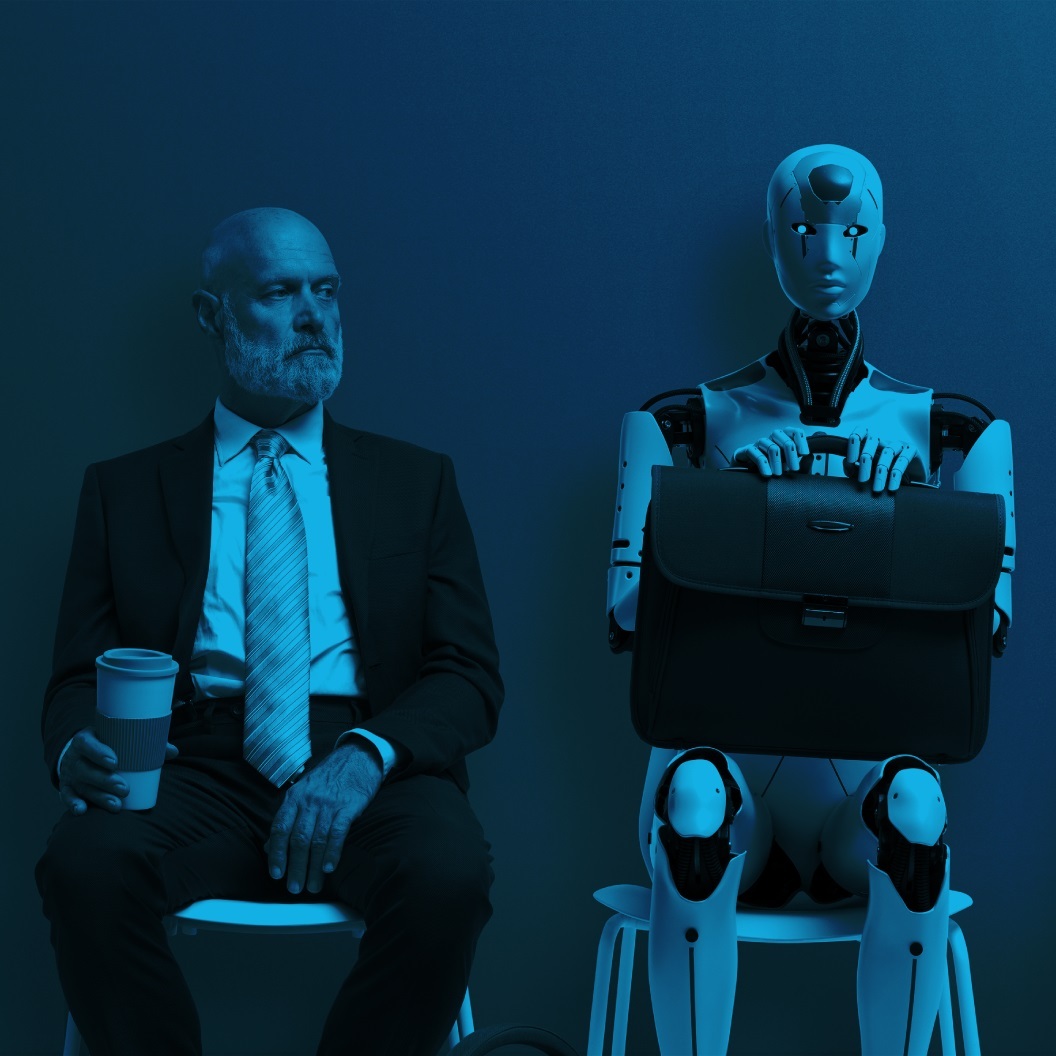Global Leaders in Circular Economy: Lessons for UK Business
As the shift to circular economy models gains pace in 2025, Daniel Hall, Director, explores how some countries are standing out as clear leaders. Understanding their progress offers valuable lessons for UK businesses aiming to stay competitive in an increasingly resource-aware global market.

As we progress through 2025, the global transition towards circular economy models continues to accelerate, with several nations emerging as clear frontrunners. Understanding which countries are leading this transformation – and why – offers valuable insights for UK businesses seeking to enhance their competitive position in an increasingly resource-conscious world.
> CIRCUARITY IS POSSIBLE: A guide to help leaders discover how to unlock the next frontier
Indeed, learning from best practice and experiences from other nations is a stated objective of the Circular Economy Taskforce, an advisory group established by the UK government to support the creation of a circular economy strategy. By identifying circular “mechanisms”, the government aims to drive economic growth, create jobs, increase resource efficiency and productivity, reduce emissions and accelerate to net zero.
Northern lights: How Scandinavian countries are setting the global standard
The Nordic nations tend to score highly on positive indices such as social progress, happiness and sustainability. Little surprise, therefore, that countries such as Finland and Denmark remain at the vanguard of circular innovation.
Finland's success stems from its comprehensive national circular economy roadmap, first launched in 2016 and now in its third iteration. Based on Finland’s traditional strengths, the roadmap is grounded on five core areas: a sustainable food system, forest-based loops, technical loops, transport and logistics, and joint action.
The country's approach combines robust government support, including targeted R&D funding and regulatory frameworks, with a highly developed technological infrastructure. Helpfully, the initiative is designed to lead the global discussion on circularity, highlighting best practices and pilots that can be easily replicated and provide added value on a national scale elsewhere in the world.
Finnish companies have excelled in creating digital platforms that track materials throughout their lifecycle, enabling more efficient resource recovery and reuse. Their sophisticated reverse logistics networks, supported by advanced IoT systems, have become a model for other nations to follow. Notable success stories include Neste's circular plastics solutions and UPM's innovative biochemicals division, which transforms wood residues into sustainable materials.
Danish toy giant Lego has taken a lead on circularity through its Replay initiative in the US, Canada and the UK, which makes it easy for families to donate pre-loved bricks to children in need of play.
Living laboratories: Dutch cities are experimenting out of necessity
The Netherlands has carved out a distinctive position through its focus on urban circular economies. Amsterdam's circular innovation districts have demonstrated how cities can become living laboratories for circular business models.
Dutch success has been built on strong public-private partnerships and a cultural predisposition towards innovation in sustainability. The country's dense population and limited natural resources have spurred creative solutions in areas such as construction waste recycling and food waste reduction, with several scale-ups now expanding internationally.
Excess Materials Exchange, a digital marketplace for secondary materials, exemplifies this innovation, while Royal BAM Group's modular construction techniques have revolutionised building waste reduction.
Fully charged: South Korea is taking a lead in circular electronics
Given its industrial heritage in steel manufacturing and shipbuilding, South Korea has emerged as a powerhouse in circular electronics. The country's manufacturers have pioneered modular design approaches that facilitate repair and upgrade rather than replacement.
The government deserves some of the credit, as legislation now requires electronics manufacturers to achieve specific recycling rates and design products for disassembly. This regulatory framework, combined with advanced materials recovery facilities, has created a thriving ecosystem of businesses focused on extending product lifecycles. Samsung's Galaxy Upcycling programme and LG's take-back and recycling schemes have set new industry standards for product lifecycle management.
Chain reaction: German firms are creating resource loops
Germany’s long-standing commitment to environmental protection, combined with its industrial heritage, has created fertile ground for circular innovation. The country’s strength lies in its industrial symbiosis networks, where waste from one company becomes raw material for another.
Engineering firms have developed sophisticated technologies for materials recovery and reprocessing, while the country's chemical sector leads in developing bio-based alternatives to traditional materials. BASF's ChemCycling project and Remondis' comprehensive waste management solutions demonstrate the commercial viability of circular approaches at scale.
What are the lessons and implications for UK business?
These international success stories offer crucial lessons:
- Regulatory certainty plays a vital role in driving innovation. Countries leading in circular economy implementation have typically provided clear, long-term policy frameworks that give businesses confidence to invest in circular solutions.
- Successful circular economy transitions require robust infrastructure. While the UK has strong digital capabilities, investment in physical infrastructure for reverse logistics and materials processing lags behind leading nations. This suggests opportunities for first movers in developing these capabilities, particularly in urban areas where density can support efficient collection and processing systems.
Consumer attitudes also play a crucial role. Nordic consumers' high environmental awareness and willingness to pay for sustainable products have created markets for circular business models. While UK consumer awareness is growing, there remains work to be done in educating and engaging consumers about the benefits of circular products and services.
Turning intelligence into strategic opportunities
The implications for UK businesses extend beyond simple replication of international models. Key opportunities areas include:
- Development of digital platforms and blockchain solutions to ensure transparency and traceability in circular supply chains
- Creation of industry-specific materials marketplaces, following the blueprint of platforms like Excess Materials Exchange
- Investment in modular design capabilities, particularly in electronics and construction
- Establishment of urban collection and processing hubs to support efficient reverse logistics
- Development of cross-sector partnerships to create local industrial symbiosis networks
- Innovation in consumer engagement and education programmes to build market demand
How the UK can become a leader, not a follower
The international circular economy frontrunners of 2025 share common characteristics: strong government support, well-developed infrastructure, and engaged consumers. But perhaps most importantly, they have created environments where circular business models are not just environmentally beneficial but commercially attractive.
For UK businesses, the challenge – and opportunity – lies in learning from these international examples while developing distinctive approaches suited to local conditions.
Success will be built on collaboration across sectors, thoughtful investment, and a long-term mindset. While systemic support such as regulation and infrastructure development can accelerate progress, many UK businesses are already demonstrating that meaningful circular innovation is achievable - and profitable. These early movers are redefining what’s possible and setting powerful examples for others to follow.
As resource pressures mount and environmental accountability becomes mainstream, the shift to circular business models is not only increasingly viable - it's becoming a competitive advantage. By embracing innovation and adapting early, UK businesses have a unique opportunity to lead, shape markets, and unlock long-term value in a more sustainable economy.


